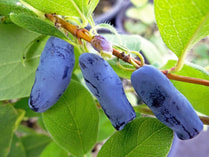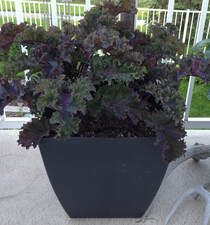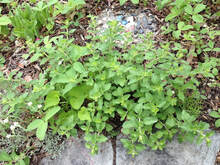
1. Fruit - Berries are Best
While home grown tree fruit is wonderful, the amount of space and fruit abundance from trees can be overwhelming and rather high maintenance. Sharing a fruit tree with a neighbour seems like a great compromise.
Berries are lower in sugar and high in antioxidants. The shrubs are relatively easy to grow, such as Haskaps, Raspberries and Saskatoons. Blueberry bushes can be rather finicky, and I’d rather allocate my resources to other plants. Strawberries seem to grow best in containers for me as a nice treat once in a while. Careful planning for appropriate space, location and care is still important for berry bushes.

Vegetables should constitute at least 50% of our food consumption, so it makes sense to grow as much of them as possible. Here are veggies that grow well and are easy to store:
- Leafy Greens – Kale, Swiss Chard (great in smoothies) and Lettuce
- Cabbage – if you have more space and want to make your own sauerkraut from scratch
- Roots- Carrots and Cylindrical and Golden Beets
- Squash – space efficient Gold Nugget Winter Squash that mature quickly and keep all winter long
- Fennel – a good amount of water is required for nice bulb, but the entire plant is edible and dehydrates and freezes well
- Garlic – plant in the fall in a sunny spot; great for less accessible spots
- Tomato – while in the nightshade family, it’s hard to stay away from at least one sweet Sungold Cherry that grows really well in a bucket garden
- Legumes – fresh and frozen beans and peas are more digestible than dried, so space efficient pole beans and climbing snap peas are great vertical growers on sticks or a trellis

- Perennial: oregano and thyme, and sorrel as an early spring green for salads
- In Containers: mint and lemon balm – easier to contain than the rather aggressive mint
- Annuals with a bit of shade: cilantro, parsley
- Annuals in good sun: basil, dill, rosemary, holy basil (tulsi)
 RSS Feed
RSS Feed